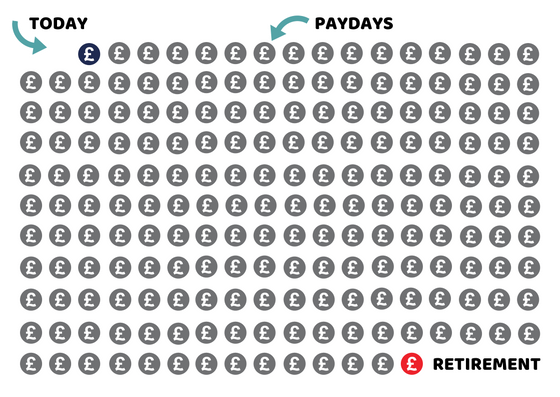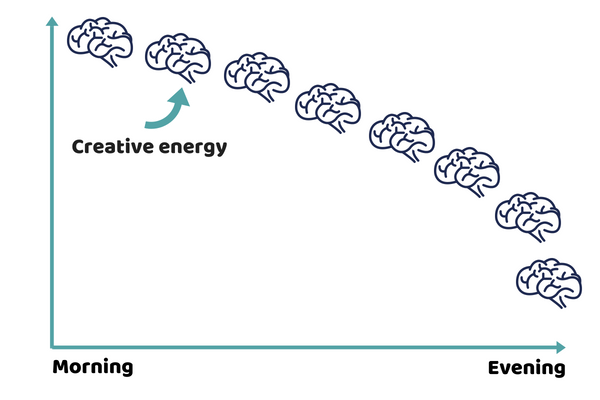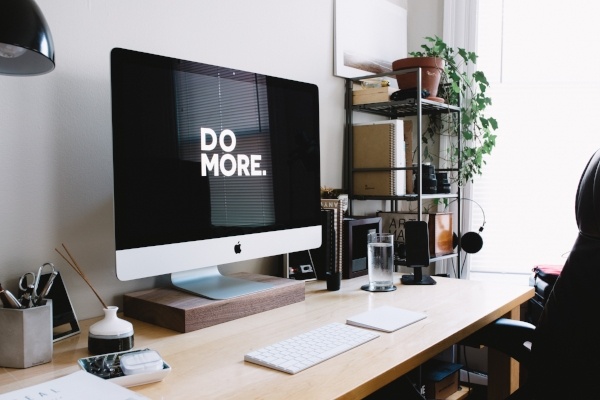

[Estimated reading time: 4 minutes, 4 seconds - read while you plan your morning's to-do list]
Breaking our lives down into numbers can be scary.
We usually feel one of two things.
Terror, followed by no action.
Epiphany, followed by an intense desire to improve.
I read an article recently from one of my favourites, James Clear, which had the latter effect.
How does the thought of having only 25,000 mornings in your adult life make you feel?
James’ article refers to a report from the World Health Organisation, which states the average life expectancy in the United States is 79 years old.
Most people in wealthy nations are hovering around the 80-year mark.
Women in Japan are the highest, with an average life expectancy of 86 years.
James calculates that, using these average life expectancy numbers and assuming that your adult life starts at 18 years old, then you’ve got about 68 years as an adult (86 - 18 = 68).
Likely less if you're not a lady in Japan….
(68 years as an adult) x (365 days each year) = 24,820 days.
25,000 mornings.

James breaks this down further.
25,000 times you get to open your eyes.
Face the day.
Decide what to do next.
I, like James, have already let a lot of those mornings slip by.
Especially work days.
I am age 40 and want to 'retire' at 65.
I have 30 days holiday allowance and spend the weekends with my family.
(365 days - 30 days holiday - 104 weekends x 25 years) = 5,775 workdays left until retirement.
If I get paid every 30 days this is 192 more paydays.

To save enough to last myself, my wife and family for 7,665 days of retirement.
(86 - 65 x 365)
I also talk a lot about developing habits.
So instead of pining over my lack of time, I decided to employ James’ strategies to help me get more from my mornings. (Major hat tip to James for the below).
You might just benefit too.
1. Manage your energy, not your time
If you take a moment to think about it, you'll probably realise that you are better at doing certain tasks at certain times.
I’m very energetic in the morning, so I cycle.

Like James, my creative energy is also highest in the morning, so that's when I do my writing.
I block out my afternoons for phone calls.
I don't need my creative energy to be as high for those.
What type of energy do you have and when?
2. Prepare the night before
If you only do one thing each day, then spend a few minutes each night organising your to-do list for tomorrow.
When I do it right, I’ll outline the task I’m going to complete the next day and develop a short list of the most important items for me to accomplish.
It takes 10 minutes that night and saves 3 hours the next day.
3. Don’t open any emails until noon
Sounds simple.
Nobody does it.

I don’t either but James claims to manage this 98% of the time.
He says:
"It took me a while to get over the urge to open my inbox, but eventually I realised that everything can wait a few hours".
Use the morning to do what's important (and remember, manage your energy).
4. Turn your phone off and leave it in another room
Or on your colleague’s desk.
Or put it somewhere that is out of sight.
This eliminates the urge to check text messages, Facebook, Twitter, and so on.
This simple strategy eliminates the likelihood of slipping into half–work where you waste time dividing your attention among meaningless tasks.
5. Work in a cool place
Have you ever noticed how you feel groggy and sluggish in a hot room?
Turning the temperature down or moving to a cooler place is an easy way to focus your mind and body. (Hat tip to Michael Hyatt for this one).
6. Sit up or stand up
Your mind needs oxygen to work properly.
Your lungs need to be able to expand and contract to fill your body with oxygen.
That sounds simple enough, but here's the problem: most people sit hunched over while staring at a screen and typing.
I recently bought a desk which I can heighten when I stand.
I find that I can breathe easier and more fully.
As a result, my brain gets more oxygen and I can concentrate better.
7. Develop a “pre–game routine” to start your day
My morning routine starts with inversion (hanging upside down like a spider monkey or bat), whilst reading the News.
It gets the blood flowing to my brain and is a rare opportunity to give my spine a rest.
Some people kick off their day with ten minutes of meditation.
This tiny routine signals to my brain that it's time to get into work mode.
Additionally, a pre–game routine helps you overcome a lack of motivation.
Most unproductive or unhealthy behaviours are the result of slow, gradual choices that add up to bad habits.
A wasted morning here.
An unproductive morning there.
The good news is that exceptional results can be achieved through consistent daily choices.
Like positively changing your morning routine.
I’ve hopefully got approximately 16,425 mornings left in total.
How about you?

